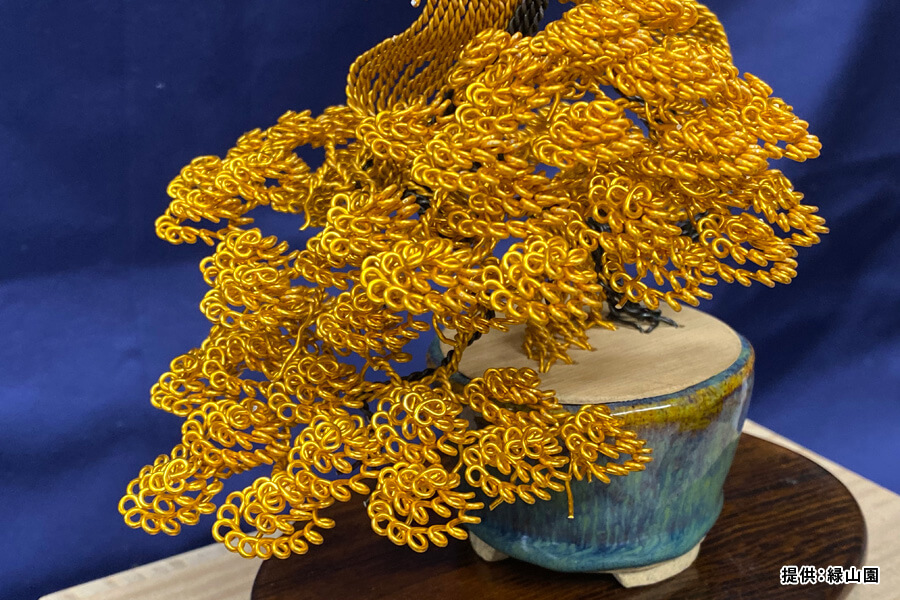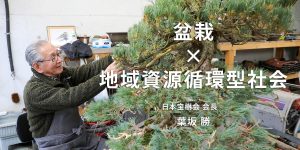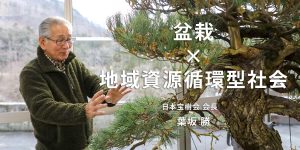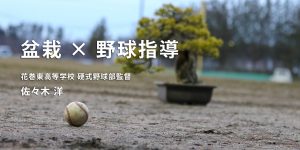A wire with an edge that cannot be cut with bonsai. The general wire is iron wire, but copper wire is the mainstream for bonsai. Don’t think it’s a wire. In fact, the wire for bonsai is quite deep.
Pride in supporting bonsai culture with wire
More than half a century of handling bonsai wire
If you’ve been involved in bonsai for a long time, the name of Shirokane Shoji Co., Ltd. may come closer. More than half a century since we started wholesale sales of wire necessary for bonsai tree formation. Yutaka Kanno, President of Taiho Trading Co., Ltd., is a copper wire specialist.
Shirokane Shoji was a company that my father started. Founded in 1946. As a wrought copper merchandise dealer, he sold copper wires and copper plates. It is a purveyor of Naritasan Shinshoji Temple, and we have the copper roof of Shinshoji Temple. It was my father who started the Narita Association in the first place.
For over 50 years before I started helping my father’s company, I have been in business with the Japan Bonsai Co-operative and have been selling copper wire to Bonsai-en. The bonsai family at that time was scary. When you go to the copper wire for delivery, you are told, “Wait until half-chan is over!” You play mahjong all day long. Because it is a cash transaction unlike now, I waited in the car until the end.
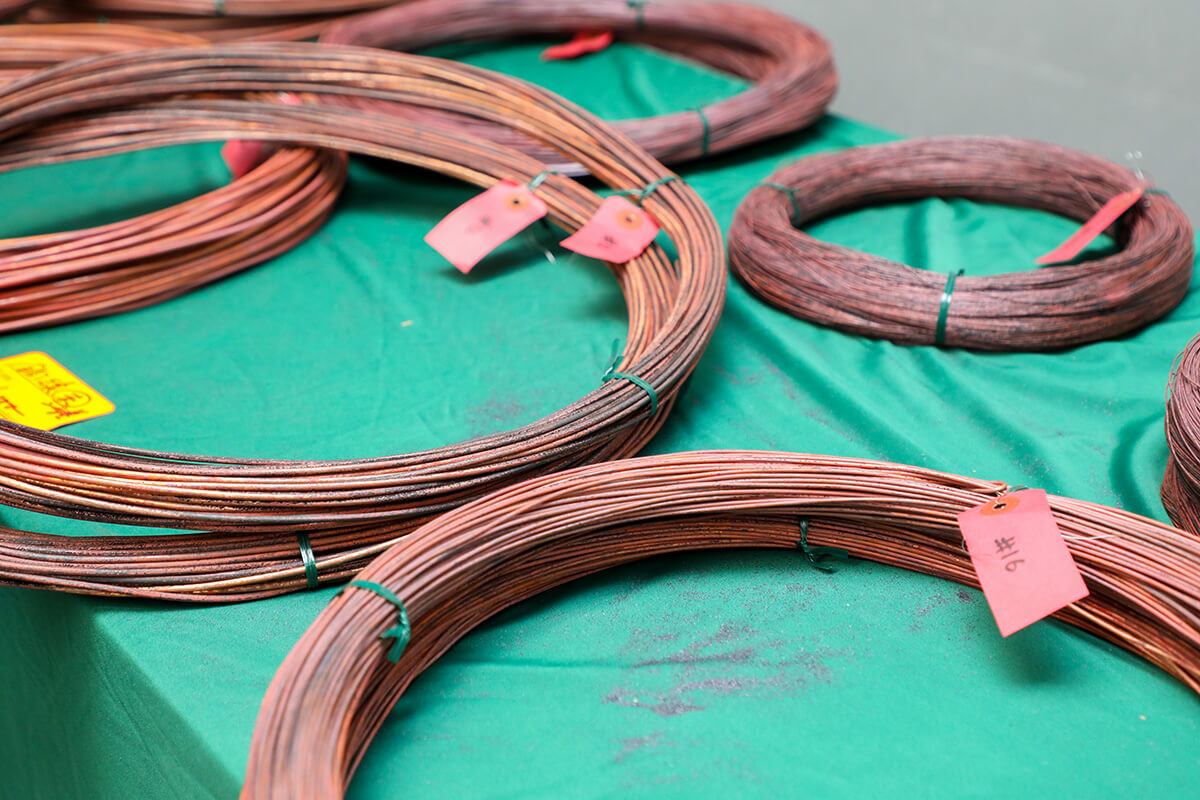
Mr. Kanno talks about that. By the way, the copper wire sold at that time was “pika wire”. In other words, it is a product that has not been heat treated since it became a copper wire.
In the past, the Bonsai family put a glowing wire in straw lit and burned it. So you adjusted the hardness to your liking. The color will also be black and less noticeable.
About 37 years ago, Sugano became independent from Shirokane Shoji. He started Taiho Trading, which sells and processes all kinds of metal materials, including aluminum, stainless steel, copper, and brass. He is now the president of Shirokane Shoji, succeeding his retired former brother. Of course, we still handle wire.
Right now, we are dealing with “baked copper wire”. After drawing the oxygen-free copper wire (purity 99.99%) of a major domestic manufacturer, we apply special sintering processing to adjust the color tone and hardness. We have received voices saying they are beautiful in colors that match the trees even if they are wired.
There are two types of baked copper wire. The red copper wire is oxidized, then softened in an electric kiln, and post-treated. The black copper wire is a product that adds nitrogen gas and then about three steps. Both are sold under the brand name Kayuka, and the bonsai god Masahiko Kimura has made the following recommended comments.
“The baked copper wire” Kayuken “is a good color, it blends into trees, and is a copper wire for branching that is indispensable for making bonsai works. There is a wide variety of handy 22th-counters that are handy, and it is a very easy-to-handle copper wire that is particular about “hardness.”
Taiho Trading also handles wires other than copper wire.
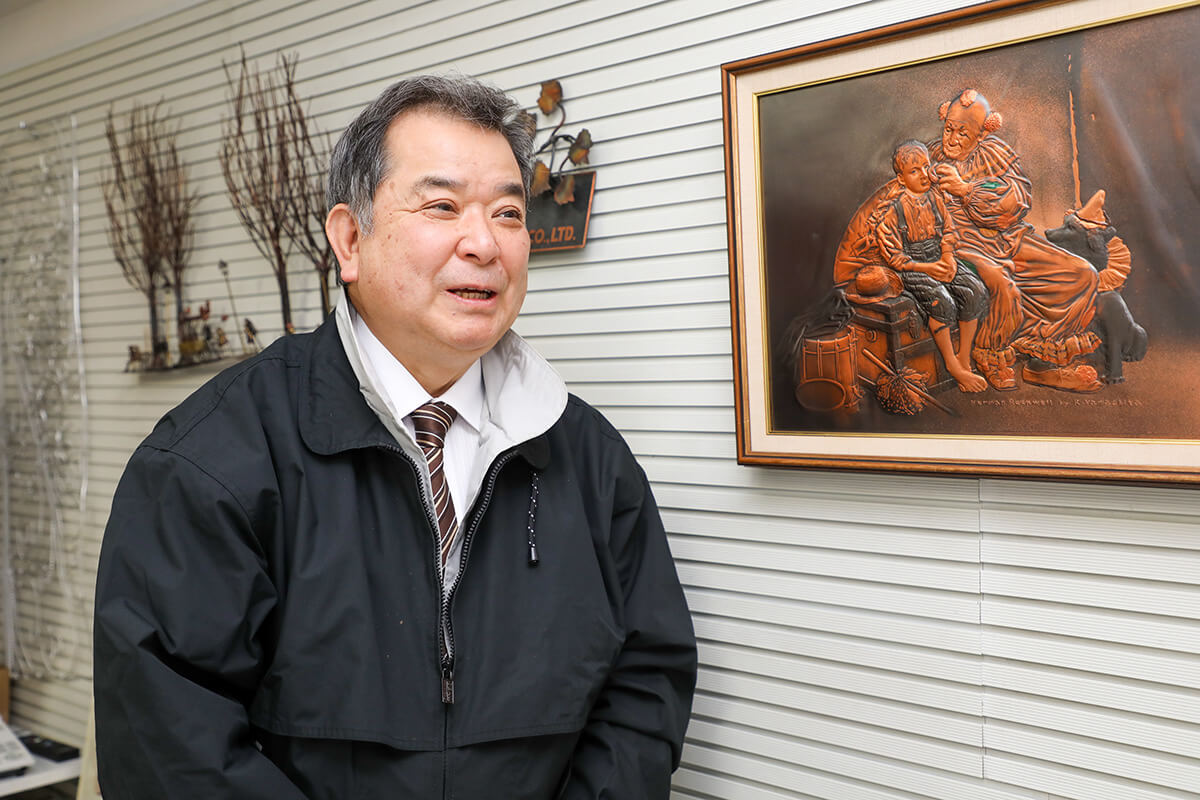
Copper wire is the mainstream wire for bonsai, but we also handle aluminum wire. After drawing high-purity aluminum wire (purity 99.7% or more), annealing. In addition, special alumite processing has been applied to the glossy fabric material and the material to improve “color tone” and “hardness”.
The Kayuka brand aluminum wire is also used by Chie Yamazaki, a famous bonsai instructor and bonsai artist who specializes in small items. Yamazaki says, “I am glad that Kayugan’s aluminum wires are available in a wide range of sizes. I like the softness of the wires when they are wrapped around the branches. Thin linear wires are useful for trees, and brightly colored aluminum wire is a fun material for the development of new bonsai.”
For Taiho Trading, there are only a handful of bonsai-related operations. Mainly wholesale products to home centers and Tokyu Hands. This is a time-consuming business, such as post-processing wires and dividing them into smaller pieces to make them easier to buy. Why is it continuing?
I’m proud of the fact that it supports the culture of bonsai behind the scenes. There aren’t many places to do this kind of business, so I think we need to take care of it.
Contact for “Kayuka”
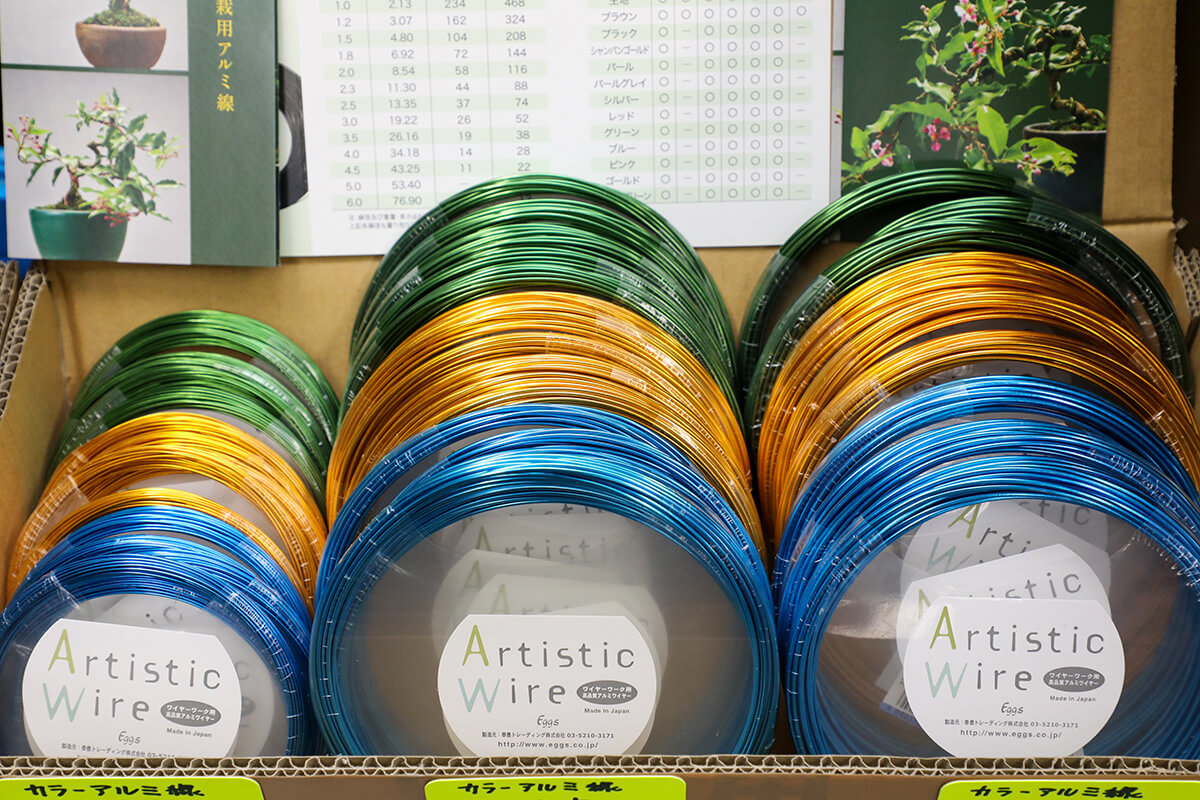
Taiho Trading Co., Ltd.
zip code 101-0061
TUG-I Building 101, 2-4-1 Kanda Misakicho, Chiyoda-ku, Tokyo
TEL03-5210-3171
FAX03-5210-7921




